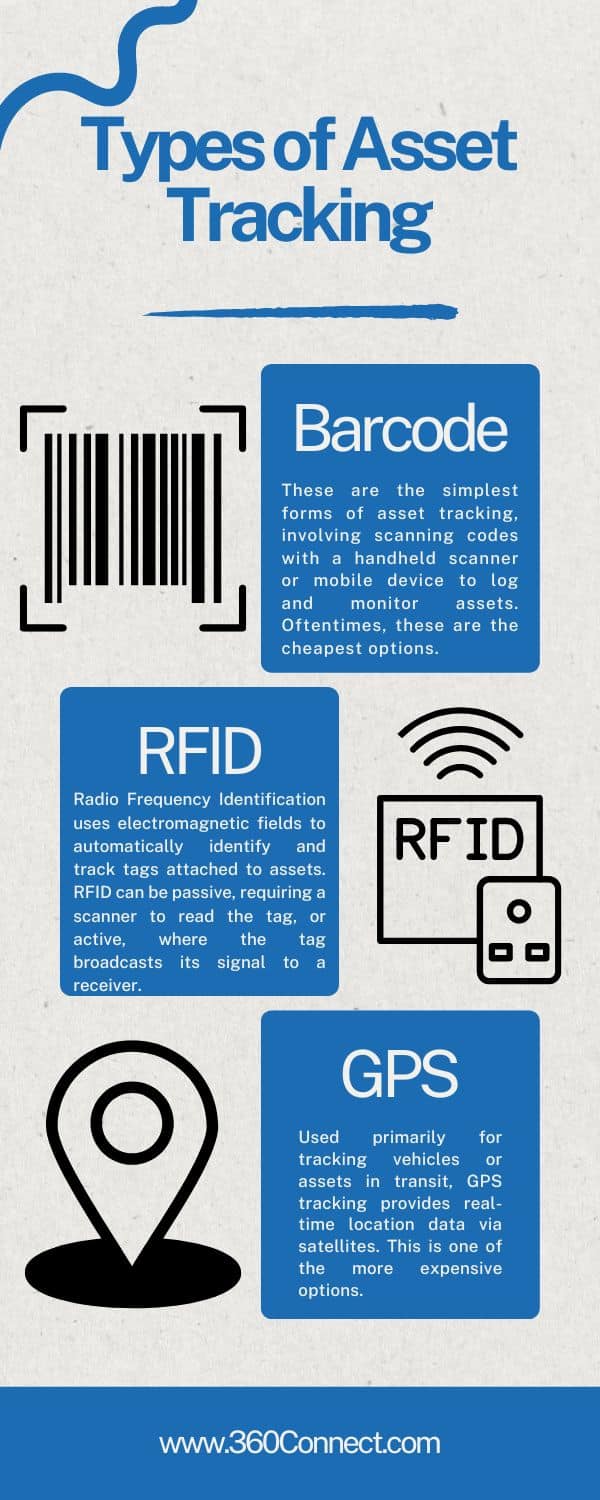Asset tracking can be a vital tool for both large corporations and small businesses. Thanks to technological advancement, asset tracking has become more affordable for the average company. Asset tracking is important because of the benefits not only to your bottom line but also the peace of mind it gives you. Let us explain.
What is Asset Tracking?
Asset tracking is the process of using technology to track company devices and equipment. The technology gives you visibility into the location and status of your assets, whether they be tools, equipment, vehicles, or any other object that is critical to your business operations. Asset tracking allows your business to be more efficient and helps provide transparency even across departments.

Why Asset Tracking Is Important
Asset tracking has many different benefits and positives. You should consider all of these benefits before choosing whether or not to use this technology.
Know How Many Devices You Have
Maintaining an accurate inventory of your assets is essential for effective asset management. Eliminate the guesswork and human error that comes with manual systems. Asset tracking not only guarantees that resources are allocated appropriately but also provides critical data for financial forecasting and strategic planning.
Track the Location of Devices with GPS
GPS tracking allows companies to monitor where your devices are at all times. This is especially important for industries with assets scattered across numerous job sites like construction, janitorial, delivery, and more.
Maximize Utilization & Efficiency
Not understanding your utilization of your equipment can lead to costly mistakes. Asset tracking can make sure you are getting the most out of your tools before you purchase more. It can also be a great way to track when tools or vehicles need maintenance and can plan intervals where that can happen. Businesses can save wasteful purchases and rentals by ensuring assets are continuously used to their full potential, which can have a major impact on your bottom line!
Theft Prevention
The theft of assets can result in enormous financial losses, not to mention operational difficulties. Asset tracking deters employee theft and can help you find stolen items. You can contact the police and move quickly to find devices. Moreover, you can set up notifications for when items are removed from specific locations so you are notified automatically. This is one of the critical reasons why asset tracking is important.
Peace of Mind
Asset tracking provides a sense of security and control over one’s business operations beyond tangible benefits. The assurance that assets are overseen and managed effectively allows business owners to focus on their core activities that bring in revenue, instead of whether or not their devices are protected.
How Much Does Asset Tracking Cost?
Learn MoreMyth vs. Reality About Asset Tracking
Throughout the years, there have been some misconceptions about asset tracking that need to be corrected. Here are some myths to consider:
Myth 1: Asset Tracking is Only for Large Corporations
Large corporations do use asset tracking often, however, the price of using asset tracking has come down significantly. Advances in technology have made asset tracking solutions scalable and affordable for most businesses. Since nearly half of all small businesses don’t use asset tracking, incorporating them into your business could give you a leg up.
Myth 2: Implementing Asset Tracking is Costly and Complex
There are varying levels of asset tracking to choose from. You can use a cheaper option (like barcodes) without breaking the bank. You also don’t need a full team to manage assets, for smaller companies, this can often be managed by one or two people.
Myth 3: Asset Tracking Only Helps in Locating Physical Assets
Modern asset tracking systems offer features like data analytics, including insights into equipment usage, maintenance schedules, and more. The more advanced systems can perform more duties.
Myth 4: Asset Tracking Infringes on Employee Privacy
Asset tracking focuses on managing physical assets rather than monitoring employees. Asset tracking systems, when applied transparently and in accordance with privacy rules, can increase workplace safety, efficiency, and resource allocation while protecting personal privacy.
Myth 5: Setting Up an Asset Tracking System is Time-Consuming
Many asset tracking solutions are designed to be easy to use and integrate with current systems. You’ll just need to apply the tracking systems to the devices and record those devices in the system. The more complex the system the more time it will take, and the simpler the quicker you can implement. Providers can also help with the process to speed things along.
Myth 6: Asset Tracking Technology Becomes Quickly Outdated
Many systems allow for upgrades if the technology changes. More importantly, technology like barcodes, RFID, and others have become a mainstay of asset tracking because of its affordability. It’ll be a long time before those options are totally replaced.
Need Asset Tracking for Your Business?
Since asset tracking is important, you’re probably wondering where you can find a provider. Have no fear, 360Connect is here! We can help you find a provider. Just fill out our 1–2-minute form and we’ll contact you to verify your information and needs. From there, you’ll receive up to 5 quotes from different suppliers for free! It’s that simple.
